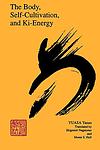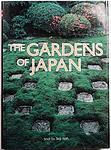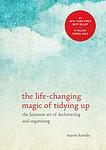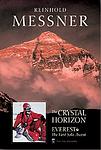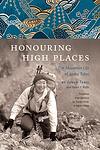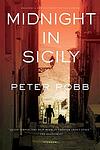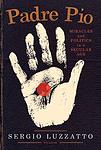The Greatest Italian, Japanese "Nonfiction" Books Since 1980
Click to learn how this list is calculated.
This list represents a comprehensive and trusted collection of the greatest books. Developed through a specialized algorithm, it brings together 300 'best of' book lists to form a definitive guide to the world's most acclaimed books. For those interested in how these books are chosen, additional details can be found on the rankings page.
Genres
Countries
Date Range
Reading Statistics
Click the button below to see how many of these books you've read!
Download
If you're interested in downloading this list as a CSV file for use in a spreadsheet application, you can easily do so by clicking the button below. Please note that to ensure a manageable file size and faster download, the CSV will include details for only the first 500 books.
Download-
1. Danube by Claudio Magris
This literary work is a rich tapestry that combines travelogue, history, and cultural analysis, following the journey of the river Danube from its sources in the heart of Europe to its delta at the Black Sea. As the narrative meanders through various countries, it delves into the complex history and diversity of the regions along the riverbanks, reflecting on the interplay of different cultures, languages, and peoples. The book is a contemplative exploration of the European spirit, examining the river as both a physical and metaphorical conduit through which ideas and influences have flowed, shaping the continent's past and present.
-
2. The Drowned and the Saved by Primo Levi
This book is a deeply moving exploration of the Holocaust, written by a survivor. It delves into the horrifying experiences at Auschwitz, examining the psychological impact on the prisoners, the brutal behavior of the guards, and the complex moral dilemmas faced by both. The author also discusses the concept of memory and its unreliability, especially in the context of such traumatic events, and analyzes the ways in which the Holocaust has been represented and remembered in society. The book serves as a profound meditation on the human condition under extreme circumstances.
-
3. The Marriage Of Cadmus And Harmony by Roberto Calasso
"The Marriage of Cadmus and Harmony" is a unique exploration of Greek mythology. The narrative follows the journey of Cadmus, a Phoenician prince, and his marriage to Harmony, a goddess. The book delves deep into the complex and rich tapestry of Greek myths, presenting them as a continuous and ever-evolving story. It offers fascinating insights into the gods, heroes, and monsters of ancient Greece, while also drawing connections to modern life and thought.
-
4. The Future Of Democracy by Norberto Bobbio
In "The Future of Democracy," the author provides a critical examination of the concept and practice of democracy, exploring its historical evolution, inherent challenges, and potential future. The work delves into the tension between the ideals of democracy and the practical realities of governing, addressing issues such as the role of political parties, the influence of public opinion, and the impact of economic inequalities. The author argues for the necessity of continuous democratic reform and the importance of safeguarding democratic principles in the face of changing social and political landscapes, ultimately presenting a thoughtful reflection on the prospects and resilience of democratic systems in the modern world.
-
5. The Body by Yasuo Yuasa
"The Body" explores the intricate relationship between the mind and body from the perspective of Eastern philosophies and medicine, particularly focusing on Japanese thought. The book delves into how cultural differences between the East and West influence the understanding and treatment of the body. It discusses the historical and philosophical evolution of body concepts in Japan, integrating theories from Western psychoanalysis and philosophy to challenge the often dualistic approach seen in Western thought. The author proposes a more holistic, integrated view of the body-mind connection, emphasizing the importance of understanding this relationship in the context of human health and well-being.
-
6. The Gardens Of Japan by Teiji Itoh
"The Gardens of Japan" explores the art and aesthetics of Japanese gardens, tracing their development from ancient times to the modern era. The book delves into various garden styles, from the serene rock gardens of Zen Buddhism to the ornate tea gardens and expansive stroll gardens. Richly illustrated and detailed, it examines the philosophical and cultural underpinnings that have shaped garden design in Japan, highlighting the intricate interplay of nature, spirituality, and art. The author provides insights into the symbolic elements of these gardens, their use of space and natural materials, and the meticulous care that goes into their creation and maintenance, offering readers a deep appreciation of this enduring art form.
-
7. The Life Changing Magic Of Tidying Up by Marie Kondo
"The Life Changing Magic of Tidying Up" is a practical guide that offers a fresh perspective on decluttering and organizing one's home. The author introduces the KonMari Method, a systematic approach to tidying that encourages individuals to keep only items that truly spark joy in their lives. Through insightful anecdotes and step-by-step instructions, the book provides valuable insights on how tidying can lead to a transformative and joyful lifestyle.
-
8. Crossing The Threshold Of Hope by Pope John Paul II
In "Crossing the Threshold of Hope," the author provides a profound exploration of his faith and addresses complex theological and philosophical questions about Christianity. Through a series of letters, he discusses the nature of faith, the existence of God, the role of the Church, and the challenges of contemporary moral issues. This book offers insights into his personal beliefs and provides guidance on how individuals can find hope and meaning in their lives through spiritual commitment and religious understanding.
-
9. Seven Brief Lessons on Physics by Carlo Rovelli
This book is a succinct and enlightening introduction to the fundamental concepts of modern physics, presented in seven easy-to-understand lessons. The lessons cover topics such as general relativity, quantum mechanics, the architecture of the cosmos, particles, quantum gravity, probability, time, and the human perspective on these scientific wonders. The book aims to bridge the gap between the complex world of modern physics and the general public's understanding, making the often intimidating subject accessible and engaging for all readers.
-
10. Journey To The Land Of Flies And Other Travels by Aldo Buzzi
This book is a collection of travel essays that take readers on a whimsical and insightful journey through various parts of the world. The author, with a keen eye for detail and a taste for the eccentric, shares his experiences and observations from his travels, ranging from the titular land of flies to the bustling streets of New York and the serene landscapes of Europe. His writing is infused with a mix of humor, reflection, and a deep appreciation for the cultures and cuisines he encounters, making this work a delightful read for those who enjoy literary travelogues and the exploration of foreign places through the eyes of a perceptive and thoughtful wanderer.
-
11. Totto Chan, The Little Girl At The Window by Tetsuko Kuroyanagi
The book is a charming autobiographical memoir of a young girl's experiences at an unconventional school in Tokyo during World War II. The narrative focuses on the unique educational approach of the school's headmaster, who values freedom, creativity, and individuality in the educational process. Through a series of heartwarming episodes, the book illustrates how the school becomes a delightful haven for the girl, fostering her curiosity and love of learning amidst the backdrop of a society facing the challenges of war. The story is a testament to the impact of progressive education on young minds.
-
12. The Crystal Horizon by Reinhold Messner
"The Crystal Horizon" is a gripping account of the author's solo climb of Mount Everest without the aid of supplemental oxygen, a feat never accomplished before. The book not only details the physical and mental challenges faced during the climb but also delves into the philosophical and spiritual journey the author undergoes. The narrative is interspersed with reflections on the history and culture of the Himalayas, the nature of mountaineering, and the author's personal beliefs and motivations.
-
13. The Power To Compete by Hiroshi Mikitani, Ryoichi Mikitani
This book delves into the economic challenges facing Japan, offering a dialogue between a father, an economist, and his son, a successful entrepreneur. Together, they explore the reasons behind Japan's stagnation and propose solutions to revitalize its economy. They argue that Japan needs to embrace innovation, deregulation, and entrepreneurship to regain its competitive edge in the global market. The book combines a deep understanding of economic principles with practical insights from the business world, making a compelling case for structural reforms and a new mindset to power Japan's comeback on the world stage.
-
14. Honouring High Places by Junko Tabei
"Honouring High Places" is a compelling collection of autobiographical stories chronicling the remarkable life of the first woman to reach the summit of Mount Everest. The book offers a deeply personal account of the challenges she faced, from societal expectations in Japan and the physical demands of climbing to the joys and tragedies encountered on her expeditions. Through her vivid storytelling, the author paints a picture of her groundbreaking climbs, her dedication to environmental issues, and her commitment to encouraging women to embrace adventure and challenge gender norms in the world of mountaineering.
-
15. Midnight In Sicily by Peter Robb
"Midnight in Sicily" explores the rich and tumultuous history, culture, and politics of Sicily from the 1970s through the 1990s. The narrative delves into the island's deep-rooted Mafia presence, its influence on social and political spheres, and the courageous efforts of those who have stood against its power. Through a blend of travelogue, cultural commentary, and political analysis, the book paints a vivid portrait of Sicilian life and the complex web of corruption, art, history, and delicious cuisine that defines it. The author's personal experiences and observations provide a compelling backdrop to the broader historical and cultural discussions, making the work both an informative and engaging read.
-
16. The Mountains of My Life by Walter Bonatti
"The Mountains of My Life" is a collection of memoirs by a renowned mountaineer, recounting his numerous adventures and expeditions to some of the world's highest and most challenging peaks. The book includes detailed accounts of his climbs, including the first winter solo ascent of the Matterhorn's north face and the first solo winter ascent of the Grandes Jorasses' north face. The narrative also delves into controversial events, such as the author's disputed role in the first ascent of K2. The book is a thrilling blend of mountaineering history, personal reflection, and breathtaking descriptions of nature's grandeur.
-
17. The Beauty Of Everyday Things by Soetsu Yanagi
The book is a reflective exploration of the philosophy and appreciation of craftsmanship, particularly in the context of Japanese folk art. It delves into the aesthetic and spiritual qualities of ordinary objects, emphasizing the beauty found in simplicity, imperfection, and the natural patina that comes with age and use. The author argues for the value of handcrafted items, suggesting that they possess an inherent life and character often absent in mass-produced goods. Through a series of essays, the work invites readers to reconsider their relationship with the everyday items that surround them, fostering a deeper understanding of the cultural and historical significance of artisanal practices.
-
18. Padre Pio by Sergio Luzzatto
The book explores the life and influence of Padre Pio, a Capuchin friar known for his piety, stigmata, and miraculous abilities, which drew both devotion and skepticism. Through rigorous historical research, the author delves into the controversies and fervor surrounding Pio, examining his role within the Catholic Church and his impact on the faithful. The biography critically assesses both the saintly and human aspects of Pio's life, presenting a complex portrait of a figure revered by many and questioned by some, set against the backdrop of 20th-century Italian religious and social history.
Reading Statistics
Click the button below to see how many of these books you've read!
Download
If you're interested in downloading this list as a CSV file for use in a spreadsheet application, you can easily do so by clicking the button below. Please note that to ensure a manageable file size and faster download, the CSV will include details for only the first 500 books.
Download



